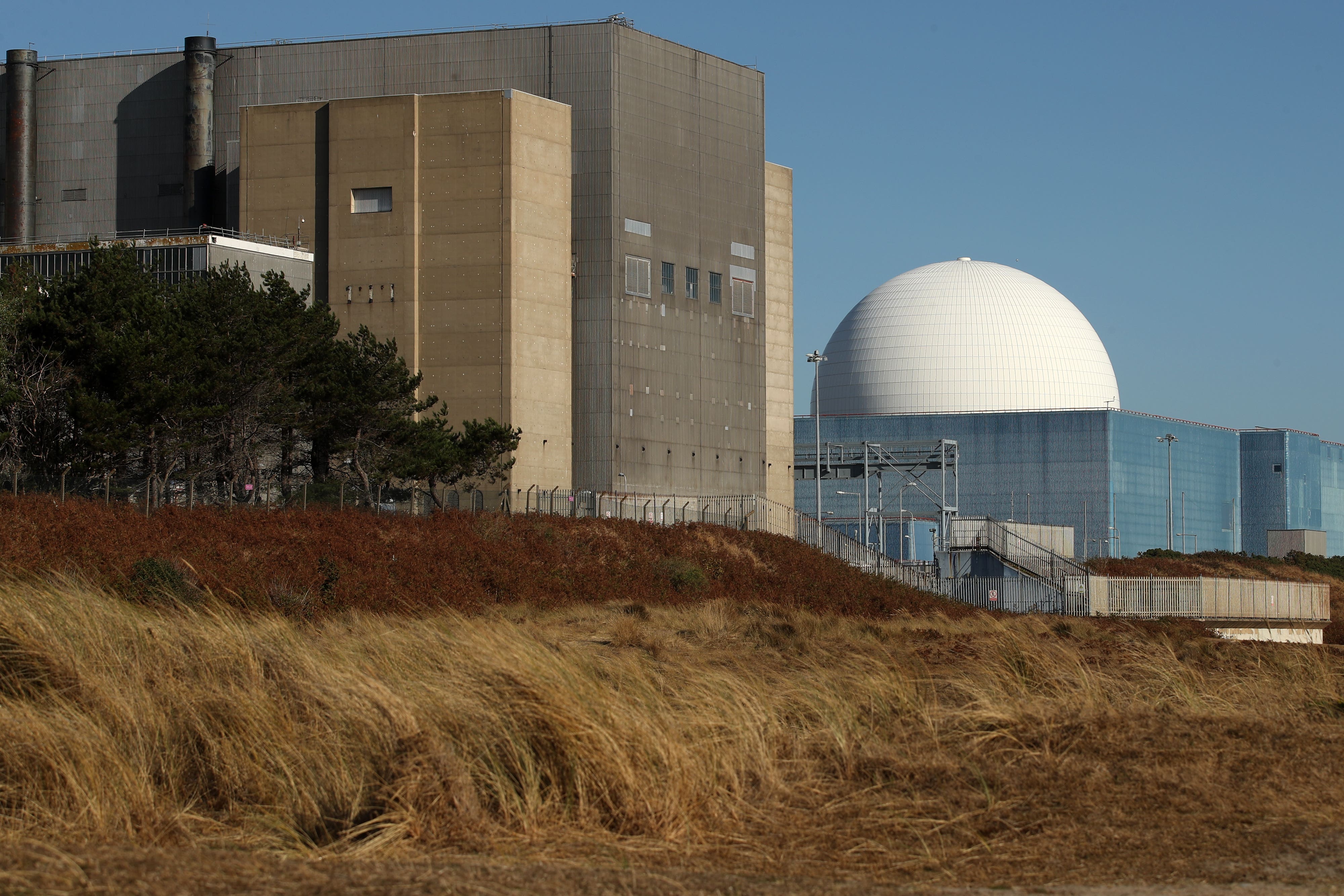Chancellor’s budget shows his head is ‘buried in the sand’, say green groups
The Government should be investing in retrofitting homes and homegrown clean energy as a way to remove fossil fuel dependence, critics said.

Your support helps us to tell the story
From reproductive rights to climate change to Big Tech, The Independent is on the ground when the story is developing. Whether it's investigating the financials of Elon Musk's pro-Trump PAC or producing our latest documentary, 'The A Word', which shines a light on the American women fighting for reproductive rights, we know how important it is to parse out the facts from the messaging.
At such a critical moment in US history, we need reporters on the ground. Your donation allows us to keep sending journalists to speak to both sides of the story.
The Independent is trusted by Americans across the entire political spectrum. And unlike many other quality news outlets, we choose not to lock Americans out of our reporting and analysis with paywalls. We believe quality journalism should be available to everyone, paid for by those who can afford it.
Your support makes all the difference.The Chancellor has been accused of keeping his head “buried in the sand” and committing public money to expensive solutions to the climate and energy crisis.
Jeremy Hunt reiterated in the Spring Budget the Government’s desire to invest £700 million in a new nuclear plant in Suffolk, £20 billion in carbon capture and storage (CCS) and he suggested that small modular reactors – a technology yet to be proved viable – could receive funding.
He also said nuclear power will be reclassified as “environmentally sustainable” while the Government’s soon-to-be-launched Great British Nuclear scheme will boost investment in the industry.
Backing expensive technologies like CCS and a new nuclear programme, while still blocking cheap onshore wind in England and failing to properly insulate the UK's energy-leaking homes, will leave the UK hooked on high energy costs
In protecting people from rising energy costs, the Chancellor said the energy price via prepayment meters will match with that of those who pay via direct debit, and he has extended the energy price guarantee at its current rate until the summer.
MPs, environmental and anti-fuel poverty groups have welcomed the renewed support for people’s energy bills but expressed frustration at an absence of new investment in clean energy and green jobs.
Shadow climate secretary Ed Miliband said Labour wants to create “over a million” jobs in green industries.
He added: “The British people should benefit from our natural resources but still the Conservatives won’t back Labour’s plan for Great British Energy – a new, homegrown, publicly-owned, clean energy company to lower household energy bills.”
Bronwen Smith-Thomas, co-director at the Climate Coalition said: “The Chancellor has delivered a budget in the midst of an energy crisis while keeping his head buried in the sand.
“This government has the chance to kickstart a British golden era for people and planet. This means supporting homegrown renewable energy and buildings upgrades to bring down bills, protecting and restoring our natural world, and providing support to the most vulnerable to insulate them from the damaging impacts of climate change and the energy crisis.”
The Chancellor was criticised for his focus on nuclear and CCS instead of insulation and renewables and MPs have questioned what has changed to make nuclear power environmentally sustainable.
Mr Hunt said the classification was to allow nuclear the same access to investment incentives that are available to renewables.
Grant Shapps, energy security and net zero secretary, said nuclear must form part of a decarbonised portfolio of energy production.
He told the Environmental Audit Committee on Wednesday: “If you want to get to net zero and get rid of hydrocarbons, we have to accept that base loads are required somewhere. Nuclear power can and should be part of that.”
Mr Shapps said that by launching Great British Nuclear, the Government will provide a “much more stable platform” for those wanting to invest in UK nuclear power as well as more clarity on the trajectory and pace of its development.
Mike Childs, head of policy at Friends of the Earth, said: “Backing expensive technologies like CCS and a new nuclear programme, while still blocking cheap onshore wind in England and failing to properly insulate the UK’s energy-leaking homes, will leave the UK hooked on high energy costs and falling behind in the global race to benefit from the transition to greener economies.”
Sam Alvis, head of economy at Green Alliance, said: “Extending the energy price guarantee and ending the premium of prepayment meters are vital interventions to protect households from ever higher energy costs.
“Yet this budget doesn’t do enough to address the reasons why this country and its households are so exposed to volatile fossil fuel prices.
“With the US and Europe spending huge sums on clean energy and green technologies like electric vehicles, we needed a budget that would encourage businesses to invest a green pound here rather than a green dollar or euro elsewhere. Instead, it feels like we are developing short-term investment schemes instead of a long-term plan for building the green economy of the future.”
Analysts are expecting what has been dubbed as the Government’s “Green Day” before the end of March, when it must abide by a High Court order and publish a revised strategy on achieving net zero.
The UK is under pressure to deliver a set of policies that would drive investment in low-carbon technology and match the Inflation Reduction Act in the US and the Green Deal Industrial Plan in the EU.
Mr Shapps said he will soon publish a detailed plan on the development and use of hydrogen and expressed his support for onshore wind, which he said is opposed by only 4% of people, according to a Government public attitudes tracker.